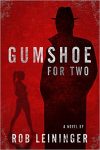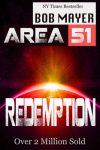

May 28 – June 3: “How do you deal with writer’s block?”
 It’s something we’ve all had to deal with at one time or another: writer’s block. This week we’re joined by ITW Members Rob Leininger, Bob Mayer, Judy Penz Sheluk, Jon Land, Paul D. Marks and R.G. Belsky to discuss how they deal with writer’s block? Scroll down to the “comments” section to follow along – you won’t want to miss this!
It’s something we’ve all had to deal with at one time or another: writer’s block. This week we’re joined by ITW Members Rob Leininger, Bob Mayer, Judy Penz Sheluk, Jon Land, Paul D. Marks and R.G. Belsky to discuss how they deal with writer’s block? Scroll down to the “comments” section to follow along – you won’t want to miss this!
 R.G. Belsky is an author of crime fiction and a journalist in New York City. His upcoming suspense thriller YESTERDAY’S NEWS will be published by Oceanview in May. It’s the beginning of a new series featuring TV journalist Clare Carlson. Two of Belsky’s thrillers from the ‘90s – LOVERBOY and PLAYING DEAD – are also being re-released by HarperCollins in December and January 2018. His most recent book BLONDE ICE (Atria- 2016), part of the Gil Malloy series – featuring a New York City newspaper reporter, was a Finalist for the David Award and a Silver Falchion nominee this past year. Belsky himself is a former managing editor at the Daily News and writes about the media from an extensive background in newspapers, magazines and TV/digital news. He was metropolitan editor of the New York Post; news editor at Star magazine; and most recently managing editor at NBCNews.com.
R.G. Belsky is an author of crime fiction and a journalist in New York City. His upcoming suspense thriller YESTERDAY’S NEWS will be published by Oceanview in May. It’s the beginning of a new series featuring TV journalist Clare Carlson. Two of Belsky’s thrillers from the ‘90s – LOVERBOY and PLAYING DEAD – are also being re-released by HarperCollins in December and January 2018. His most recent book BLONDE ICE (Atria- 2016), part of the Gil Malloy series – featuring a New York City newspaper reporter, was a Finalist for the David Award and a Silver Falchion nominee this past year. Belsky himself is a former managing editor at the Daily News and writes about the media from an extensive background in newspapers, magazines and TV/digital news. He was metropolitan editor of the New York Post; news editor at Star magazine; and most recently managing editor at NBCNews.com.
 Jon Land is the USA Today bestselling author of 43 books, including ine titles in the critically acclaimed Caitlin Strong series, the most recent of which, STRONG TO THE BONE, won the 2017 American Book Fest Award for Mystery/Suspense. He recently published A DATE WITH MURDER, his first entry in the MURDER, SHE WROTE series that he’s taken over. And last year he also teamed with ThrillerMaster Heather Graham on THE RISING, the first in a groundbreaking sci-fi series.
Jon Land is the USA Today bestselling author of 43 books, including ine titles in the critically acclaimed Caitlin Strong series, the most recent of which, STRONG TO THE BONE, won the 2017 American Book Fest Award for Mystery/Suspense. He recently published A DATE WITH MURDER, his first entry in the MURDER, SHE WROTE series that he’s taken over. And last year he also teamed with ThrillerMaster Heather Graham on THE RISING, the first in a groundbreaking sci-fi series.
 Paul D. Marks has written three novels, co-edited two anthologies and written countless short stories. He’s won a Shamus Award, was voted #1 in Ellery Queen Mystery Magazine’s 2016 Reader’s Choice Award and been nominated for Anthony and Macavity Awards. His story “Windward” was chosen for The Best American Mysteries of 2018. His short fiction has been published in Ellery Queen Mystery Magazine, Akashic’s Noir series (St. Louis), Alfred Hitchcock Mystery Magazine, Crimestalker Casebook, Hardluck Stories, Hardboiled, and many others.
Paul D. Marks has written three novels, co-edited two anthologies and written countless short stories. He’s won a Shamus Award, was voted #1 in Ellery Queen Mystery Magazine’s 2016 Reader’s Choice Award and been nominated for Anthony and Macavity Awards. His story “Windward” was chosen for The Best American Mysteries of 2018. His short fiction has been published in Ellery Queen Mystery Magazine, Akashic’s Noir series (St. Louis), Alfred Hitchcock Mystery Magazine, Crimestalker Casebook, Hardluck Stories, Hardboiled, and many others.
 Judy Penz Sheluk is the author of two mystery series: The Glass Dolphin Mysteries (THE HANGED MAN’S NOOSE and A HOLE IN ONE) and The Marketville Mysteries (SKELETONS IN THE ATTIC). Her short crime fiction appears is several collections. In addition to ITW, Judy is member of Sisters in Crime, the Short Mystery Fiction Society, and Crime Writers of Canada, where she serves on the Board of Directors as the Regional Representative for Toronto/Southern Ontario.
Judy Penz Sheluk is the author of two mystery series: The Glass Dolphin Mysteries (THE HANGED MAN’S NOOSE and A HOLE IN ONE) and The Marketville Mysteries (SKELETONS IN THE ATTIC). Her short crime fiction appears is several collections. In addition to ITW, Judy is member of Sisters in Crime, the Short Mystery Fiction Society, and Crime Writers of Canada, where she serves on the Board of Directors as the Regional Representative for Toronto/Southern Ontario.
 Rob Leininger is the author of the “Gumshoe” series featuring the P.I., Mortimer “Mort” Angel. GUMSHOE was nominated for a Shamus Award by the Private Eye Writers of America for Best P.I. Novel of 2015. Other novels in that series include: GUMSHOE FOR TWO and GUMSHOE ON THE LOOSE. GUMSHOE ROCK will be published in August of 2019. Other standalone novels include RICHTER TEN, SUNSPOT, JANUARY COLD KILL, MAXWELL’S DEMON, and KILLING SUKI FLOOD (optioned by Warner Bros. for a movie).
Rob Leininger is the author of the “Gumshoe” series featuring the P.I., Mortimer “Mort” Angel. GUMSHOE was nominated for a Shamus Award by the Private Eye Writers of America for Best P.I. Novel of 2015. Other novels in that series include: GUMSHOE FOR TWO and GUMSHOE ON THE LOOSE. GUMSHOE ROCK will be published in August of 2019. Other standalone novels include RICHTER TEN, SUNSPOT, JANUARY COLD KILL, MAXWELL’S DEMON, and KILLING SUKI FLOOD (optioned by Warner Bros. for a movie).
 NY Times Bestselling author of over 70 books including the #1 series Green Berets, Area 51 and Time Patrol. Bob Mayer is a West Point graduate, former Green Beret and feeder of Cool Gus. Born in the Bronx, having traveled the world, he lives peacefully with his wife (who collaborates with him).
NY Times Bestselling author of over 70 books including the #1 series Green Berets, Area 51 and Time Patrol. Bob Mayer is a West Point graduate, former Green Beret and feeder of Cool Gus. Born in the Bronx, having traveled the world, he lives peacefully with his wife (who collaborates with him).
- LAST GIRL MISSING with K.L. Murphy - July 25, 2024
- CHILD OF DUST with Yigal Zur - July 25, 2024
- THE RAVENWOOD CONSPIRACY with Michael Siverling - July 19, 2024
